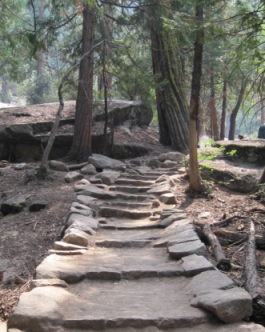It was one day several months ago, while I was still in graduate school in New York City, I went to Manhattan’s Union Theological Seminary to check out some books from their library to review for Ebon Musings. As I passed through the doors, I felt the momentary flash of irrational anxiety that I sometimes feel when entering such places – will they realize who I am? what will they say if they do? – but of course no such thing happened; the woman on duty at the front desk glanced at my ID and waved me through with a smile.
On the way to the library, in an otherwise empty hallway, my eye was caught by a bulletin board displaying job listings: openings for pastors, for preachers, for ministers, for professors of theology at churches and schools across the nation. I paused there to read those postings, and as I did, I had an odd insight: I could do this.
I do not mean that I could do it as I presently am, of course. I could not effectively argue for a position that I myself did not believe, and I rather doubt that a church seeking a pastor would be glad to hire an atheist. But in some alternative history, some possible world of the imagination where events had taken a different course and I had somehow become a Christian, I could have been a pastor. More, though modesty would ordinarily forbid me to say it, I strongly believe that I could have been an excellent pastor.
I do not mean that I would be an astounding public speaker – I know I am not one, though that could be improved with practice. Nor could I envision myself as a missionary. But I consider myself a deeply spiritual person, passionate about the things I believe in, fascinated by history and the intricate imaginings of human theology, and always eager for the opportunity to share my thoughts about religion, belief, and how we should treat each other. Unfortunately, almost all of the job openings fitting that description are on the other side.
It was not always this way. There was a time in America, in the late nineteenth century, when a rousing spirit of freethought swept the nation, when great men like Robert Green Ingersoll could travel the nation speaking on the evils of religion and the virtues of secularism, and be received by enthusiastic audiences and packed lecture halls everywhere they went. But even at its height, during this golden age of freethought, the demand for atheist orators was never as great as the demand for preachers. Even when there was a freethought society in every city, there was a church on every street corner. And we have never had the opulence, the luxury, the self-abasing respect and deference from society, enjoyed by the power-brokers of organized religion. True, not every minister or evangelist possesses those privileges, but as far as I am aware, no atheist movement has yet attained them.

There can be no doubt that religion’s grip on society is still extremely powerful. Looking up at a cathedral, or watching a worship service in a megachurch, is a reminder of how much money and influence has been poured into building up these massive social structures, and what we atheists are up against when we oppose them. It is easy to work in an existing system, to join the crowd, to go with the flow – which is why most people do. On the other hand, it is always difficult to be the maverick, the rebel, the freethinker, boldly living outside the system, challenging the system, and tempting the wrath of the powerful and entrenched interests who have risen to power atop it. The flames of the martyr’s stake and the graves of patriotic rebels throughout history testify to the peril in confronting the established order. (Even in the so-called civilized countries of the West, there can be very real danger in stepping forward to declare oneself an atheist.) Small wonder, then, if we occasionally hear the tempting whisper of conformity.
But no matter how easy joining the system of organized religion would be, it would not be true to the facts, and what is more, it would be a betrayal of ourselves. And as the Bard said, above all else, to thine own self be true. If the choice is between joining a system where I might enjoy acceptance, achievement, even success, but where I cannot feel that I am living in the truth, or standing on the outside and hurling barbs against that high wall, I choose the latter without hesitation. I cannot say what might have been or how far I could have gone, had I taken the other road, but I can say that I do not regret that choice, not for one moment.